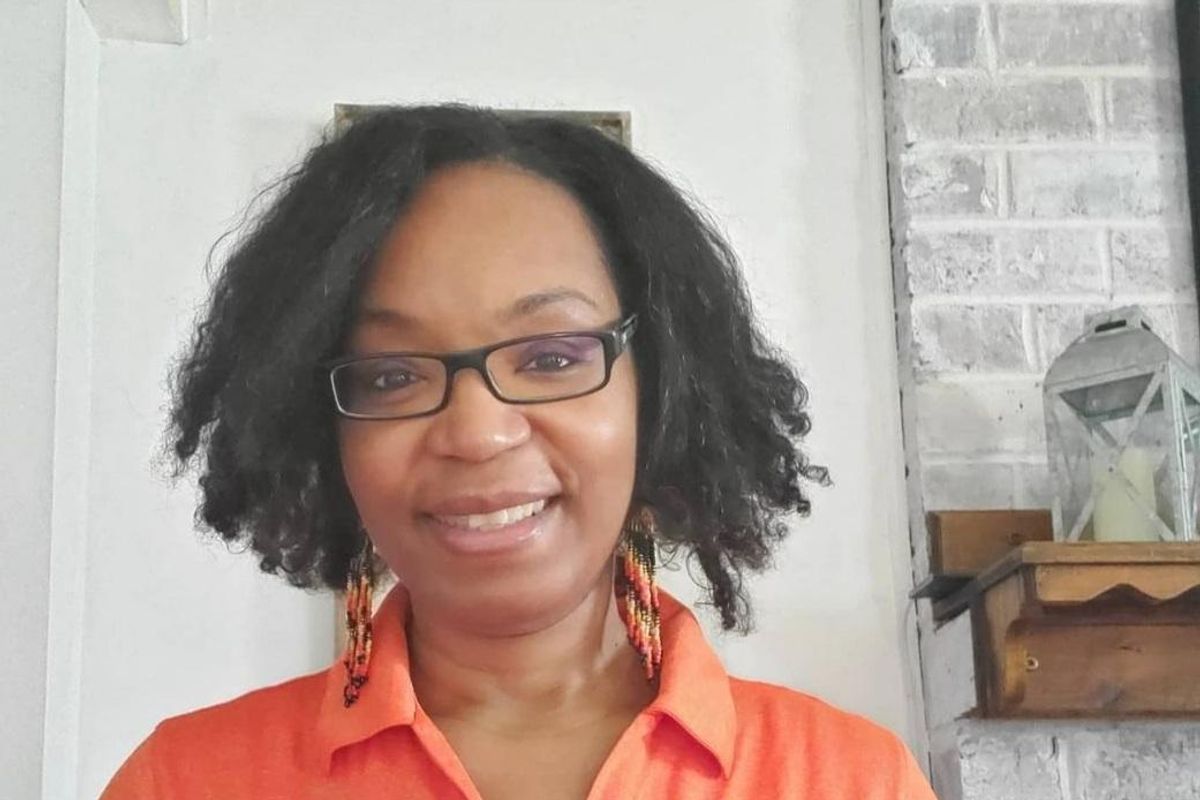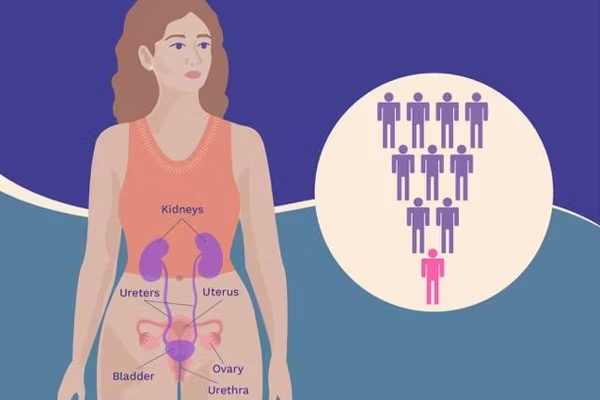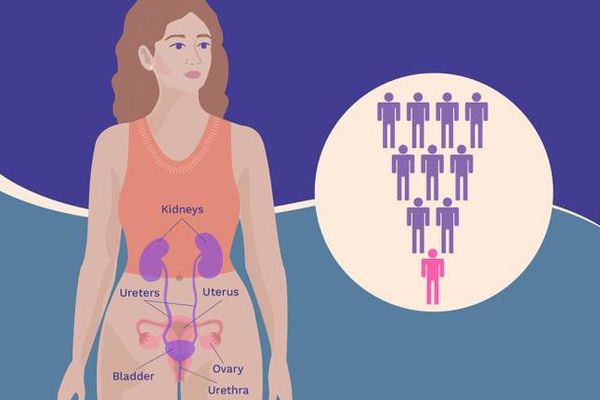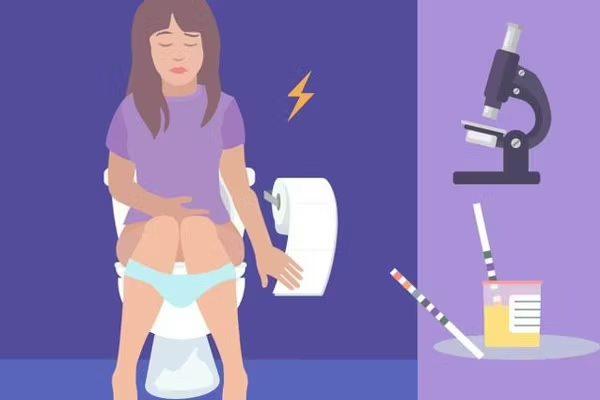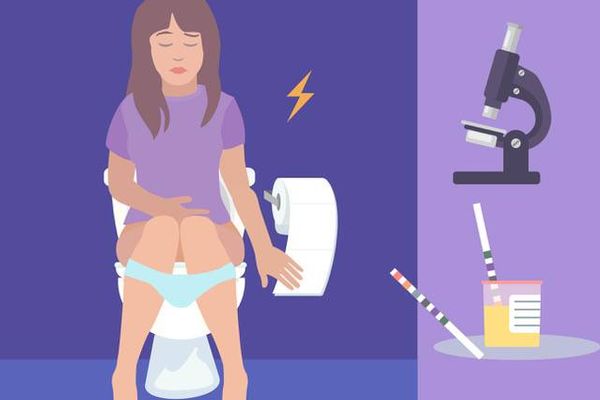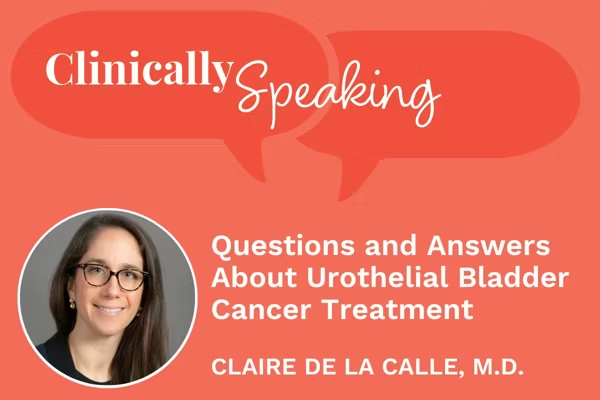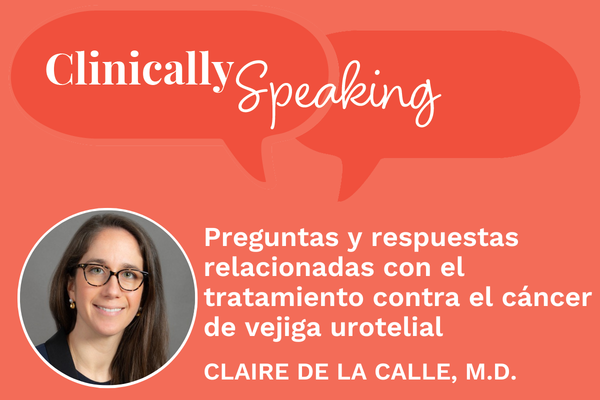As told to Shannon Shelton Miller
During my annual Pap test, my gynecologist became very concerned after feeling a lump on what she thought was my ovary. An ultrasound showed it was on my bladder, so she referred me to a urologist for further testing.
The urologist performed a cystoscopy, or bladder scope, and urinalysis. I’ll never forget when he came back and told me, “It’s bladder cancer.”
I immediately started crying. I’d never heard of bladder cancer, so I immediately had all kinds of questions. “What is that? Where did it come from? How did I get it? Am I going to die?” I was just 30 years old, and I didn't have any children. That was my other big question — would I be able to have them? The clinic gave me some information, and I went home and told my family. I then went online to start my research.
I didn’t think I had any signs or symptoms that would have been a red flag for bladder cancer. Based on research, bladder cancer affects mostly older males, and smoking is one of the biggest risk factors. I’m a nonsmoker, although I was exposed to secondhand smoke as a young adult when my parents, family or friends smoked.
While I had been having ongoing issues with urinary tract infections (UTIs) and kidney stones, I’d always see a doctor and take antibiotics, and they would clear up. Looking back, I thought the blood I saw in my urine was menstrual blood or related to the UTIs, but I know now it was possibly a red flag for bladder cancer.
I underwent transurethral resection of bladder tumor (TURBT) surgery to remove the tumor and had to return every three months for another cystoscopy to check for cancer recurrence. Bladder cancer has an 80% recurrence rate and, for some reason, every time I had a checkup, the cancer was back. The pain from the surgery and cystoscopies was unbearable to the point where it was difficult for me to urinate. My healthcare providers put me on pain meds to try to make it easier, and I received one treatment of an antitumor chemotherapy drug.
This cycle continued for approximately three years. I’d get treated, only to have the cancer return three months later.
One time, I was told my urologist wouldn’t be available for my regular checkup, and they’d have to push my appointments back. I told them I didn’t want to do that because I had a history of bladder cancer recurrence. I immediately became an advocate for myself and my health, and then told them to find another urologist who could see me right away.
My new urologist was able to simplify things to where I could understand them. He even drew pictures for my husband and me to explain everything he was going to do. He started the chemotherapy drug treatment again and took a more aggressive approach with my treatment.
This time, the cancer didn’t return at my three-month checkup. I eventually graduated from having appointments every three months to every six months, and then I went to being checked every year. It's now been more than 10 years since I’ve had a recurrence. I’m so glad I spoke up for myself and found a different urologist who took my concerns seriously.
Even though I’m cancer-free, bladder cancer has affected my overall quality of life. My bladder muscles are very weak, and I suffer from a lot of leakage. I’m mindful of my liquid intake, and when I go out, the first thing I look for is a restroom. Because when I have to go, I know there’s no way to hold it. I just have to go.
One positive is that I don’t have as much pain anymore. My cancer was noninvasive so it didn’t penetrate my bladder, and because they got to the tumor early, I was able to keep my bladder. Still, I know I’ll need regular monitoring for life, and I’ll always have to get checked to make sure the cancer hasn’t returned.
I also dealt with a lot of anxiety and depression because having to see the urologist every three months was mentally draining, and it’s scary to think about cancer possibly coming back. Even now, when I go for checkups, I get nervous. I just try to remain positive and do things that help to ease my mind. I’ve been to counseling and taken medication for the anxiety, and I also find taking walks in nature very calming. Self-care is a must!
It’s so important to have a great support system as well. My strong faith in God has helped me through this journey, and I have my husband, my family and my friends, along with the Bladder Cancer Advocacy Network (BCAN) and the God Can Cancer Support Group, which have helped encourage me along this journey. I’m currently the president of the Richmond, Virginia, BCAN Chapter and help plan awareness walks in my community to educate people about the signs and symptoms of bladder cancer so they know the red flags they should watch for. Support groups also let you know you don’t have to go through this journey alone.
In 2017, I began a new cancer journey. During a breast self-exam, I discovered a lump under my armpit. Luckily I already had my mammogram scheduled for that week, because when the lump showed up on the image, I was told I needed to see the breast surgeon immediately.
I’ve now overcome breast and bladder cancer, but I’ve had to go back to seeing my urologist every six months for closer monitoring since I’m a double cancer survivor.
Cancer doesn’t have to be a death sentence. I’m surviving and thriving after cancer. Awareness is very important for prevention, so get your regular screenings and checkups and perform your breast self-exams. It’s important to be an advocate for yourself, which gives you the ability to communicate your needs — physically, spiritually and mentally. Be sure to talk to your healthcare providers, and definitely don't diminish your feelings, pain or discomfort in your body. No one knows your body better than you!
This resource was created with joint support from Astellas and Seagen.
- Exclusive Interview with Fran Drescher - HealthyWomen ›
- Signs You May Have a Bladder Issue - HealthyWomen ›
- Living With Bladder Cancer - HealthyWomen ›
- What Women Need to Know About Urothelial Bladder Cancer ... ›
- It's Bladder Cancer Awareness Month: Time to Share My Story ... ›
- Life After Diagnosis: Navigating the Things You Love with Urothelial Bladder Cancer - HealthyWomen ›
- Staying Hopeful After 5 Recurrences of Cancer - HealthyWomen ›
- Doctor’s Dismissed My Bladder Cancer Symptoms as UTIs - HealthyWomen ›
- After Breast Cancer, I Was Diagnosed with Cervical Cancer - HealthyWomen ›

